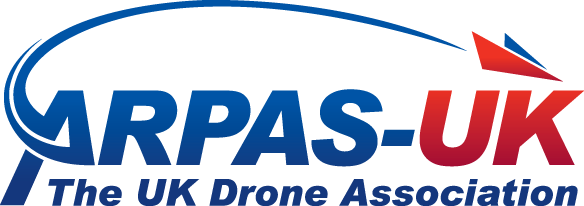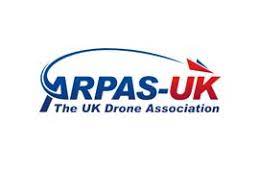12 February 2025 – ARPAS-UK is a trade body and our #1 mission is to support our members’ business and their business growth. Our objective is to accelerate the safe and professional adoption of drones across all industries, unlocking its transformative impact for the economy and wider society. This includes projecting a positive mindset about our own confidence in our success as an industry. It is also about supporting a positive public perception of our community.
Engagement philosophy with the CAA
Our approach to the Regulator is therefore to support them by representing the views of our members to ensure the most pragmatic regulation is put in place in a timely manner. We see little benefit in criticising the Regulator publicly – if there are legitimate criticisms we believe we will achieve better results for our members by lobbying strongly behind the scenes, providing responses to Consultations and using our position as a well-respected industry body.
In our exchanges with the CAA, our target is proportionate regulations, and the ability to do more, safely, at a reasonable compliance cost. For example, in our response to the service charge consultation, our main points were focused on the outcome for operators (fees multiplied) rather than pointing out mistakes made. That consultation response was the output of multiple iterations with members over several weeks, and we’re confident that these are the comments and priorities expressed by our members.
ARPAS-UK REG SIG Position Paper #2 shared with CAA – Dec’ 2024
In December 2024, ARPAS-UK’s Regulation Special Interest Group (REG SIG) shared its Position Paper #2 with its members and with the CAA. This 20-page document outlines our regulatory advocacy priorities. The absolute priorities were:
- Standstill on PDRA01 – no migration to the EU PDRAs or STS based on SORA because they are very conservative (controlled ground area and more). See points 4 and 11 below – hence our statement that we welcome that standstill by the CAA.
- No location-specific SAIL applications for OSC holders current Business as Usual. See point 7 below
- More PDRAs or generic SORAs for lower risk operations. See point 5 below.
The complete and exact table of content of the 20 page ARPAS-UK REG SIG Position Paper #2, shared with our members and the CAA, reads as follows:
1. Consultation on Scheme of Charges due Jan 6: some charges possibly at x2 x3 or even more. Proportionate, fair, and reasonable?
2. Open category: what’s next at the end of the transition period Jan 2026?
3. VLOS maximum range, 500m specified in the Specific category but not in the Open category
4. Existing PDRA01 – UK SORA – no impact – no regulatory setback.
5. New PDRAs for lower risk operations, starting with Reduced distances from uninvolved people with low-mass low-speed low-height data capture drone ops and BVLOS with Visual Observers
6. PDRA01 Audit, return of experience
7. UK SORA – Absence of reference to generic location authorisation. Would be an unjustified profound set-back vs current OSC/ORA annual authorisations.
8. Transition to SORA for the OSC/ORA holders: Avoiding overcomplexity. Learning the lessons from Europe. Transition period. Grandfather’s rights. Briefing. Training.
9. Operations Manual for OSC renewals / anticipating SORA application / opportunity for clearer leaner Ops Manual
10. Atypical Air Environment Clarifications. Zoom on Electronic Conspicuity.
Appendix:
11. Why transitioning UK PDRA01 to poor performer EU STS01 with controlled ground areas would be a mistake.
12. Updated RAG on Regulatory Matters identified in May 2024 report.
In our exchanges with the CAA, we provide as many facts and evidence as possible, sourced from our members, from stakeholders, and from other international organisations like us, so that we can help shape proportionate regulations.
As the UK’s trade association for the drone industry, ARPAS-UK strongly supports regulation that is both appropriate and proportionate. We believe that relevant and accessible authorisations will encourage operators to remain within the regulatory framework, promoting industry growth and maintaining high safety standards.
By continuing to engage with the CAA and advocating for sensible regulatory solutions, ARPAS-UK aims to ensure that the UK drone industry thrives under a system that balances safety with operational practicality.
ARPAS-UK Organisational Objectives
ARPAS-UK fosters a collaborative environment that promotes growth and innovation within the drone industry. As part of our organisational objective, we work to build opportunities across diverse industries, including demonstrating use cases and actively engaging with Local Government to support the integration of drone technologies in meaningful ways. We are committed to advancing STEM education for the future, including inspiring the next generation about the potential of drone technology and industry stakeholders. With drones firmly on the national agenda, we encourage organisations and individuals to join ARPAS-UK and be part of shaping the future of this dynamic industry.
*** end ***

